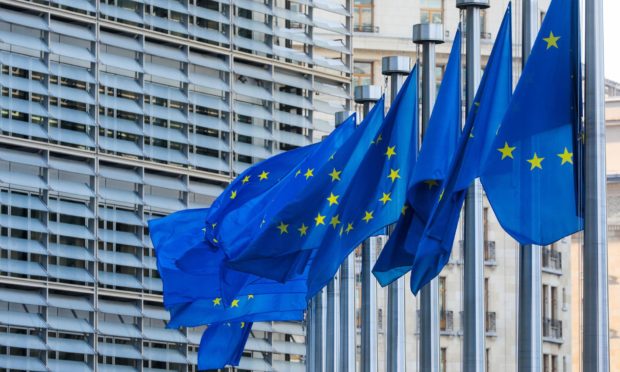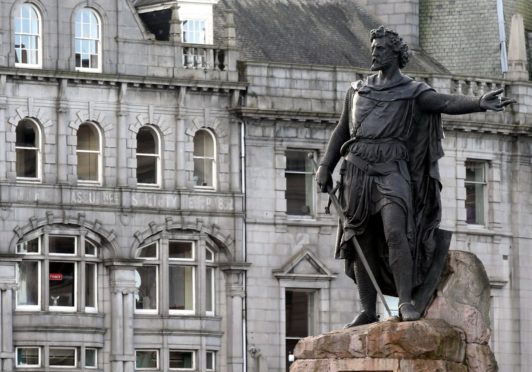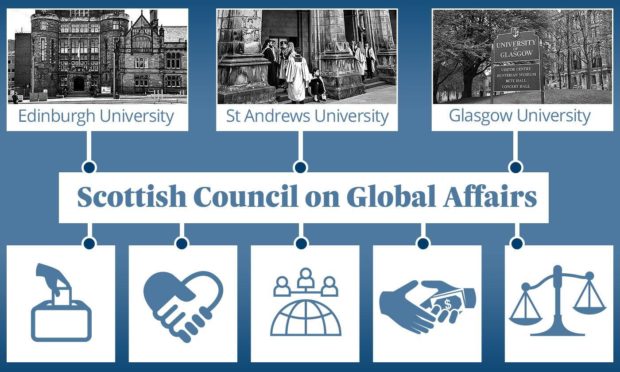A group of Scotland’s leading universities, supported by the government and political parties, is set to launch a new Scottish Council on Global Affairs to throw a spotlight on the country’s place in the world and help shape public policy.
After the Battle of Stirling Bridge in 1297, William Wallace sent a letter to the Hanseatic League letting them know that Scotland was open for business.
The 13th and 14th century bloc, which spanned an area from the Low Countries through parts of modern-day Poland, Germany, Sweden and the Baltic States, was in many ways the European Union of its age.
The Hanseatic League was the leading economic and political powerhouse in northern Europe at that time controlling sea routes, facilitating duty-free trade, forging common laws and business rules, and assuring defense commitments between member guilds and city states.
WallaceWilliam knew the Scots would need trading partners and allies, and his outreach to the League was a concrete early example of Scotland forming a foreign policy doctrine.
It’s in those footsteps the Scottish Council on Global Affairs wants to follow – with an update for the 21st century.
“The idea is to put expertise on international affairs at the disposal of public policy” explains Professor Peter Jackson from the University of Glasgow.
“But there’s also an important role to play which is to explain Scotland to the world and even more importantly the world to Scotland.
“I was almost exorcised by the lamentable level of public debate and understanding over Brexit, and how so many British journalists were just crap at cutting through all the b-s on both sides, and getting experts to talk about what was really at stake” he adds.
Scottish Government support for the project
The Council, due to get off the ground this autumn, launches with three academic partners in Glasgow, Edinburgh and St. Andrews Universities with others likely to join later.
There’s broad political support too, from Scottish Labour, the Liberal Democrats and SNP with the Scottish Government expected to commit funding to get things off the ground. It’s understood there have been discussions about support for the project with the Cabinet Office via the Scotland Office; and the Foreign, Commonwealth and Development Office too.
A Scottish Government spokesperson says officials are working with the universities “to determine how [we] can best support it, to ensure that there is a high level of debate about international issues and their impact on Scotland.”
The Council, like others in European capitals, would act as a ‘critical friend’ to the government: editorially and politically independent, able to launch a policy paper with a minister one day, then take an opposing position the next, even if they receive funding from central government.
“You want something that adds to our foreign policy discussion and debate in Scotland, something that advances discussion, something that feels free to be critical or praiseworthy of the government but certainly independent in its thought” says Stephen Gethins, a former SNP MP, now Professor of Practice at St. Andrews.
“If you look at other models, the Finnish model, or the Institute of International and European Affairs in Dublin for example, I think that this fills a gap in the market for another serious think tank in Scotland.”

What would the Council actually do?
At first blush the new Scottish Council on Global Affairs will be a think tank for academics writing policy papers and holding seminars, but they aim to bring in other people with expertise to contribute from civil society, business, journalism and politics.
The initial focus will be on foreign, security and defense policy with a strand of research into European affairs and Arctic issues too.
“In a country the size of Scotland we’ve got areas in which we can specialize. In my opinion they have to be areas like climate change and climate justice. On areas around peace building I think it’s something we’ve been good at historically, we can act as a safe space for those who are affected by conflict as well” explains Stephen Gethins.
There’s an expectation of working with other similar organisations in Europe to pool expertise and build capacity: so if Denmark had expertise in one area and Scotland had expertise elsewhere they might be able to compliment each other in a multilateral context.
There’s also a keen desire to engage with the public to promote evidence-based debate around international affairs.
“From a Scottish foreign policy perspective we’re deeply affected by the international community around us whether we like it or not” says St. Andrews’ Stephen Gethins.
“Our trade is, which means jobs are. Our higher education sector is an international sector, our constitutional politics are driven right now by our relationship with the other countries in Europe. This isn’t a new thing.”

